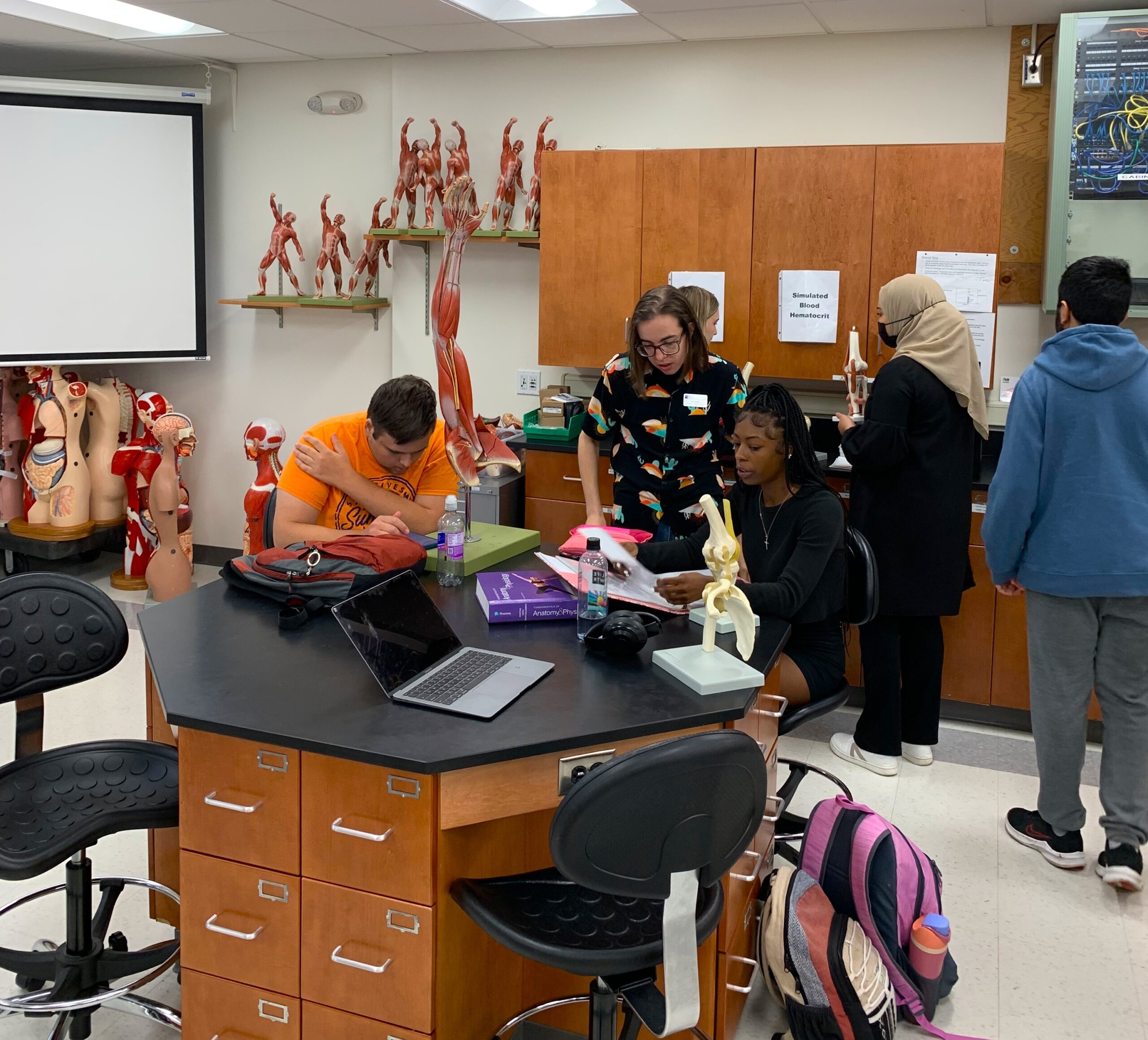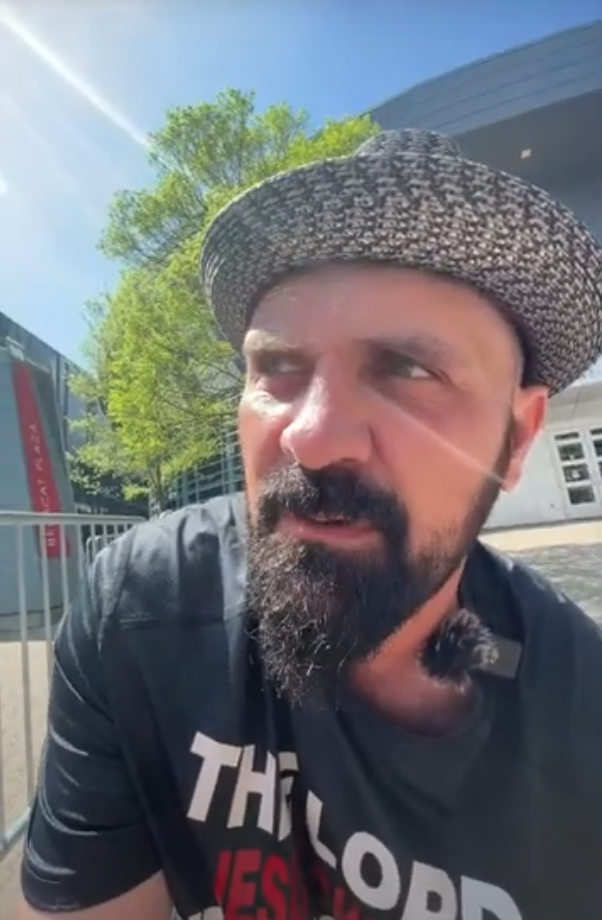STLCC, under the pressure of growing demand for job training and increased enrollment
Amy Winstead
– News Writer –
In 2006, a devastating scandal routed money away from a campaign to raise St. Louis Community College’s income with a tax levy, named Proposition EJ. STLCC, under the pressure of growing demand for job training and increased enrollment, has again proposed projects for job training centers, roof and elevator repairs, and science lab renovation; this time through state funding.
The new proposed projects in a Fifth State Bond Issue will not show up on the ballot this year or even next year with the current state of the economy. It is up to the state legislation to place the projects on the ballot and then voters need to approve the state spending.
In 2006, the previous referendum, Proposition EJ, would have raised personal property tax by 12 cents and paid for similar district improvements. Unfortunately, the referendum failed to pass despite an earlier telephone survey that suggested a majority of voters favored the referendum. So what happened?
On June 5, 2009, Steve Wyatt Earp was sentenced to five years of probation for the theft of $189,000 from campaign funds for Proposition EJ. Earp was hired as the political consultant for the Citizen’s Committee for Education and Job Training. Earp spent campaign funds on expenses such as luxury cars and an engagement ring, overcharging the Citizen’s Committee for printing costs and mailings. The public was not, in fact, saturated with mailings and voter turnout was less than 20 percent in St. Louis County.
Propostiton EJ would have paid for job training programs, new instructional facilities, roof repairs, heating and cooling system replacement, technology infrastructure, and improving campus security.
Earp repaid the $189,000 in conjunction with his probation. The restitution money, not the full $600,000, was repaid to the 55 campaign donors in proportionate amounts from a few dollars to more than $100,000. The Citizens Committee wanted to restore the confidence of the donors. There was a difference of opinion for the college leaders who would have liked to have been included in the decision and would have liked to use the money in positive ways for the college.
“It’s all resolved, that’s all behind us. We are strongly supportive of the college,” said John Roedel Jr., Treasurer of the Citizens for Education and Job Training.
The Citizens for Education and Job Training would have been discontinued after the campaign for Proposition EJ ended except for a diligence to continue to investigate and seek accounting from Michael Rohrbacker. The former Deputy Treasurer for the Citizen’s Committee, Rohrbacker had questionable spending such as donations to Oktoberfest, his personal expenses at a Republican Party event and a bar tab of $1300. He justified the pub expenditure as “supposed campaign meetings.”
“In the past we’ve sought legal representation for accounting from Rohrbacker, but it was interrupted by the Earp investigation and prosecution,” Roedel said.
Roedel is committed to accounting for the misuse of funds.
“[The committee has been] continuing for three and half years, chasing for restitution from Mr. Rohrbacker to help maintain the good reputation of the college with donors and voters, and in part, it has been successful.”
Online opinions reveal distrust in anything to do with raising taxes right now.
“I have adopted the “Just Say No” slogan that they use for drugs, when it comes to taxes,” said screen name Neocon in response to the St. Louis Post Dispatch Article “Community College seeks to move beyond scandal.”
Others like Neocon said that they did not believe in raising taxes in the current recession.
“Why not challenge Pujols to a home run derby. You have a better chance winning that than passing a tax hike in a deep recession. Tighten your belts,” said screen name jjk.
Roedel hopes that people will realize the importance of colleges in the community.
“College is one of the most important institutions in the community, in the general culture and for the economy, because of the work-training development,” Roedel said.
The tax levy of Proposition EJ needed the approval of voters for the tax increase.
The projects on a ballot in a State Bond must also be approved by a majority of voters.
However, the State Bond does not increase state taxes. Instead, it assigns were the money will be spent.
A State Bond Issue comes from state revenues and may be in the amount of several hundred million dollars over a period of 20 years. Projects such as repairing roads and buildings are projects that can be funded by state revenues.
The state revenue comes from state taxes withheld from employee paychecks and the state taxes on goods and services within Missouri. State investment in projects that have 40-year life cycles is different from tax increases to increase revenue for a public service such as transportation.
A past State Bond, the fourth State Bond issues, in 1996, funded projects such as the expansion of the Humanities East Building on the Meramec campus, the construction of the Hospitality and Restaurant Management building at the Forest Park campus, and the construction of a training center at Florrissant Valley.
Meramec completed an upgrade of five science labs last year, about one-third of its total labs. Put fourth in the fifth State Bond is the request to renovate the remaining two-thirds.
Roof repair was a project that Proposition EJ had hoped to earn money for and is still a priority for the entire district of St. Louis Community College campuses. The work force development center would offer job training programs that might serve people seeking their first employment, assist people with current employment and in this economy help people train for new jobs.
The ballot measure will not be voted on anytime soon, but depending on discrepancy, the legislation could be as soon at 2010.
“Right now I am uncertain about the timing. The economy is sluggish, but we have already submitted a comprehensive list of seven projects to the Missouri Department of Higher Education,” said Carla Chance, Vice Chancellor of Finance and Business Services.
The Missouri Department of Higher Education turns the submitted projects over to the Joint Commission on Capital Improvements who will assess the need and value of a state bond issue.
“There are a number of people touching this and working on it,” Chance said.
Once placed on a ballot by the legislation, the Community College Forward Committee would raise money from the community and college employees to support advertisement and a get out the vote campaign. Until it reaches the ballot, the Community College Forward Committee is inactive.
“We try to pick [projects] that have district-wide appeal and improve the education opportunities at St. Louis Community College,” Chance Said.
The seven projects add up to approximately $100,000 million, but Ms. Chance would think the ballot measure is a success if any of the projects receive funds.
“We are hopeful for 17 million,” Chance said.
Chance hopes students are the ones that vote on this next ballot.
“I have very little interest in the past. I think the college is focusing on our priorities for the future,” Chance said. “We serve 25,000 students at STLCC and there are alumni who understand the value of the education. I hope those are the people that go to the polls.”











